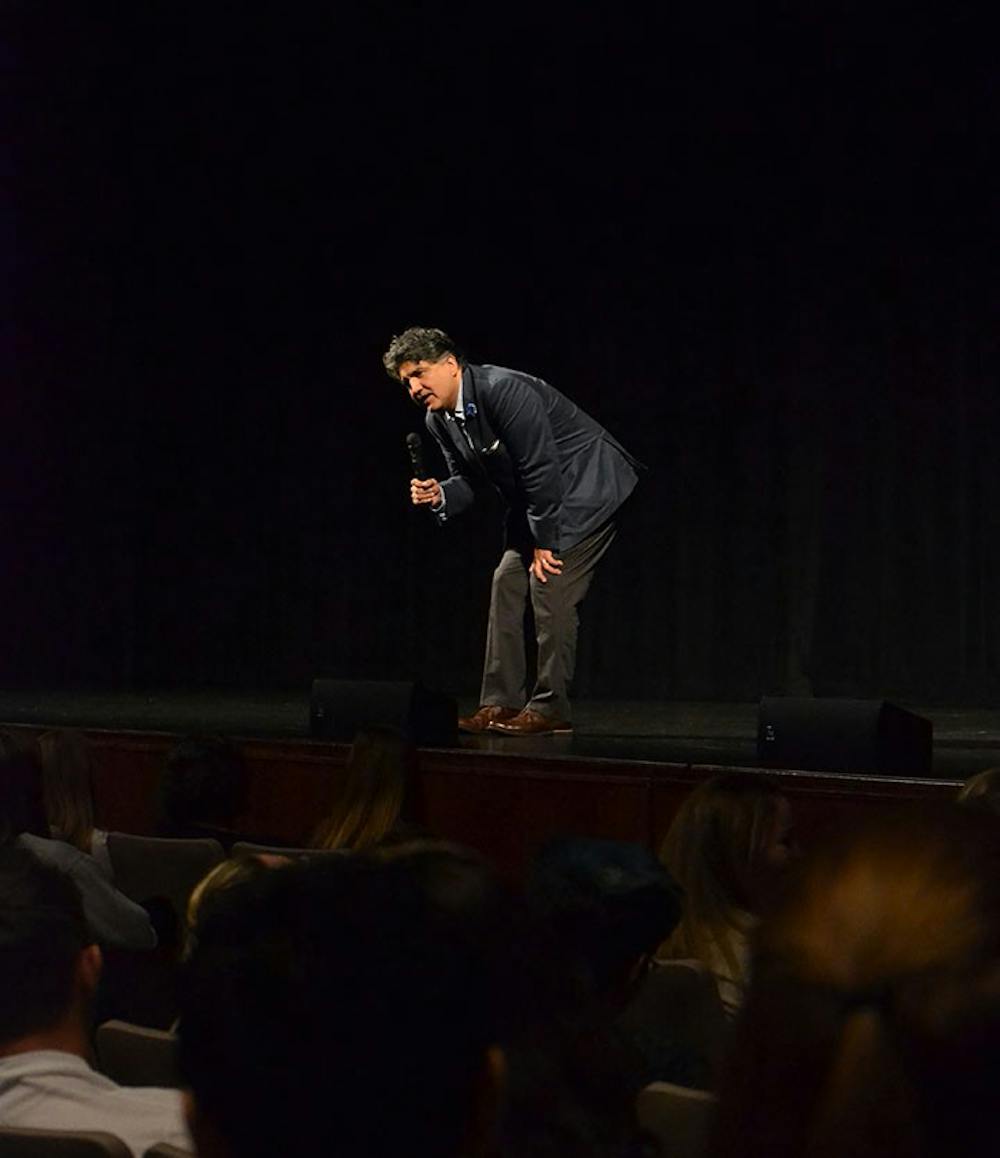Audience members roared with laugher and applause Wednesday evening at Shippensburg University’s H. Ric Luhrs Performing Arts Center as Sherman Alexie wove ideas of cultural competence and personal stories together.
Alexie spoke as a part of SU’s annual Day of Human Understanding. He has published 25 books including the young adult novel “The Absolutely True Diary of a Part-Time Indian.” Alexie is a Spokane and Coeur d’Alene Indian and grew up on the Spokane Indian Reservation.
The goal of Alexie’s lecture was to open people’s minds and encourage them to learn new things about themselves, according to Acting Provost Traci Schoolcraft. Alexie challenged the audience by incorporating themes of racism, poverty and beliefs into his lecture.
While Alexie told stories about his life and made many jokes along the way, he often went off his narrative path to discuss these themes. This is what Alexie said draws people in, and that being direct is too easy.
“As a writer, as a story teller, it’s the tangents that are the important parts,” Alexie said.
He began by telling a story about his mother who thought something was wrong with him when he was born because his head was too big. His mother took him to the hospital on the reservation, but the doctors told her nothing was wrong.
“They ignored, number one, because she was a reservation Indian, but also because she was poor,” Alexie said.
Alexie also told a story about his 9-year-old cousin who took him to a park when he was five months old. His cousin pushed him on a swing and he fell off, causing him to get splinters all over his body. This story lead to a tangent about self awareness and religion. Alexie said if you are not suspicious of yourself then you are the problem.
“The world, the universe, is far too vast for us to even begin to comprehend,” Alexie said. “So, we need to make it smaller.”
The problem with making it smaller, Alexie said, is that you begin to worship yourself. He reiterated that people do not like to be mocked or made uncomfortable by things they do not want to hear or talk about.
“All too often all of us return again and again to the stories that comfort us. We don’t want to be challenged,” Alexie said. “We want our biases to be confirmed again and again and again.”
To close, he reiterated themes such as racism, poverty and classism because people often will listen to him speak but then deem that all he did was attack white people. He asked rhetorical questions such as how he was smarter than the audience and how he was able to see things that others were not able to or refused to see.
“What you call blasphemy, I call poetry.”





The Slate welcomes thoughtful discussion on all of our stories, but please keep comments civil and on-topic. Read our full guidelines here.